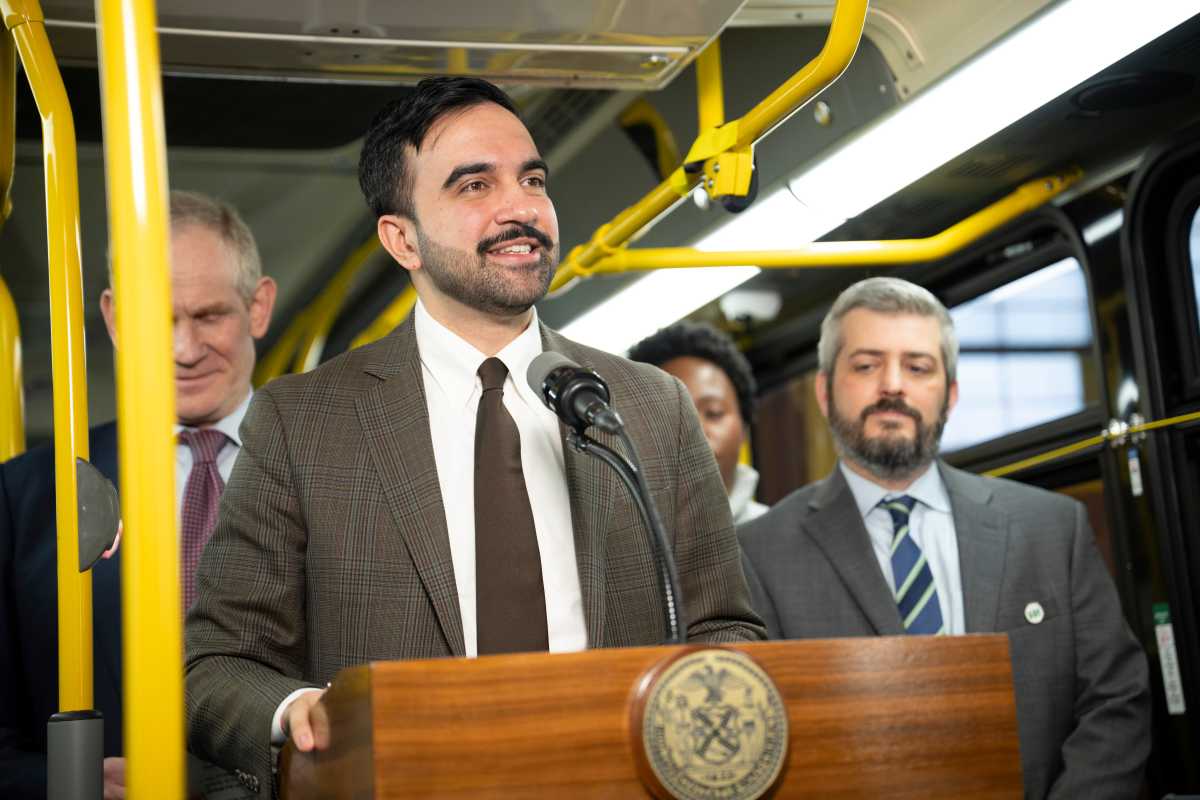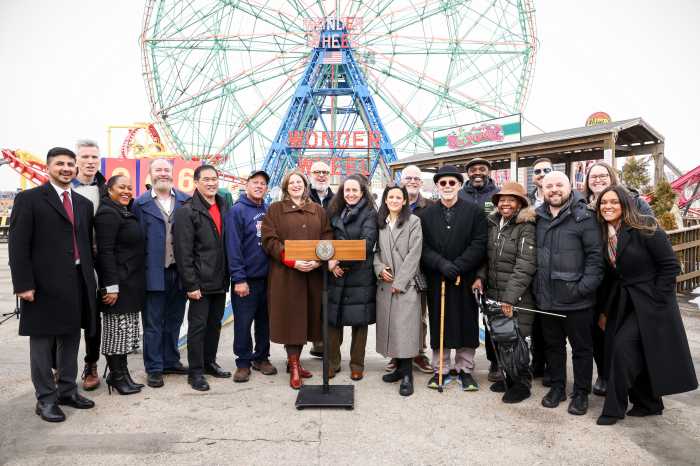Bus and subway workers may not carry guns or axes like cops and firefighters – but in a very real sense they too are on the front line.
When the World Trade Center towers collapsed, thousands of transit workers volunteered, or were directed by the MTA, to work the pile. Many became seriously ill and some died for their service.
As Superstorm Sandy barreled towards New York City, transit workers were ordered by the MTA into the mandatory coastal evacuation zones so they could quickly restore bus and subway service after the deadly storm passed.
When there is a shooting or stabbing or theft on a bus or subway train, transit workers are the first uniformed personnel on the scene.
It’s not uncommon, meanwhile, for a transit worker to jump to the tracks and rescue a rider who has fallen from the platform and is in jeopardy of being hit by a train.
But transit workers hired after 2012 contribute up to 6% of their pay for pensions – twice as much as police officers and firefighters hired after 2012.
“Transit workers are not police officers or firefighters, but like firefighters and police officers, transit workers have very unique, very important and very dangerous jobs,” TWU Local 100 President John Samuelsen said. “They deserve respect and pension fairness.”
The dangerous nature of transit workers’ jobs can’t be underestimated. Track workers contend with the electrified third rail and trains going through their work zones every few minutes. More than 240 transit workers – many trackmen struck by trains – were killed on the job since 1946.
Four transits workers a day on average, meanwhile, are assaulted or harassed. The abuse includes being punched, spat upon, kicked and verbally threatened.
Bus operators and train conductors are the public punching bag for the unhinged and riders frustrated to the point of violence about fare hikes, overcrowding, service delays and diversions. In one heinous attack, Bus Operator Edwin Thomas, 46, was stabbed to death in broad daylight in Brooklyn in 2008 by an ex-con farebeater.
More recent incidents include: a 62-year-old Bus Operator who was pummeled by a reportedly mentally-ill rider who first attacked while the bus, packed with passengers, was moving; a 69-year-old Bus Operator who was punched twice in the face by a young man reportedly upset that another bus didn’t stop for him earlier; a 52-year-old Bus Operator who was struck in the eye by a laser while driving, and Bus Operator who had a bottle thrown at him by a teenager at a bus stop.
State legislation placed newly hired transit workers in the Tier 6 pension class and mandated pension contributions jump from 2% to 6%. The Legislature should roll that back. Legislators should fix Tier 6.










